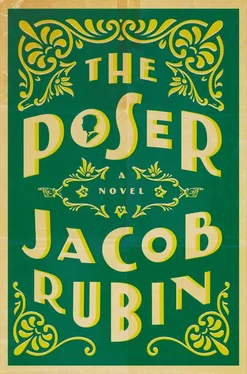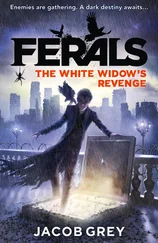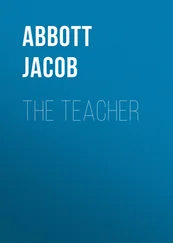Afterward these volunteers would often track me down at the balcony bar. I would say to them, “Thanking me is like thanking a mirror,” which they took as an example of wit, and I suppose it was, though I didn’t intend it to be. More and more I would be deemed witty or ironical when I was trying only to defend myself, and yet I’d be lying if I claimed there wasn’t some hope, underneath all that success, that Mama was right after all, that I really was sympathetic to the bone.
“One more time for Giovanni Bernini!” Max said at the end of that second performance, and the applause crashed down.
Again my conniving manager had snuck champagne backstage. Again we guzzled it and fell into a nostalgic, dreamy dialogue, and again I wandered out in the crowd, and again, through that carwash of hands, found Lucy, this time moping on the balcony’s red steps.
“There you are,” I said, fortified by booze.
Lucy looked up lazily. “Drunk again.”
“Little sauced at the edges,” I said, like a noir detective. Drinking seemed to scramble my channels.
“You hold it well.”
“Shoulda known you’d be cold with me.”
“Yeah, you should have,” she said and like that, warmed to me. You could almost hear it happening.
“You like the show?”
“Toast of the town. Amazing, of cooourse,” she said. “But sad.”
“Sad? Why’s that?”
“Whenever something’s funny, when a joke works, it’s sad.”
Other people would have probed. They would’ve said: “Because you feel like someone’s being made fun of?” Or, “Do you like being sad?” But I hated asking questions.
“How ’bout we go.”
I wouldn’t remember the walk beyond the warmth in the night air and the big bright moon. I wouldn’t remember entering the brownstone on Chaplin Street, or the three-flight walk to her cramped apartment, or the act itself beyond the pockets of new warmth. I woke at dawn, kind of jet-lagged to be on Earth, our unhumiliated asses in the air.
“To the roof,” I said, still drunk. We climbed the stairs. A few times she slapped my behind and I shushed her, and then slapped hers, too, and dashed up the stairs. She wore my tux shirt over her panties. I, in my jacket and pants, lunged against the rusty door, and we emerged into that brief calm after dawn, when you can’t tell if the day is beginning or fading, but you know it can’t last. The bridges spanning the river looked as if they’d been built strictly for us, for our tiny lives, and I yawped because when it’s dawn-time, when you’ve tossed your virginity out the window and watched it spiral down to nothing, you yawp.
We kissed, and I watched her eyes open after the kiss, thinking it might help me. It didn’t. She shivered in my arms. It was cold. Winter coming.
“Look,” she said.
By the far ledge a squadron of pigeons, fat and thrumming, had landed. You saw pigeons all the time in the City, but they were always roosting on skyscraper ledges or dodging commuter shoes, and yet, even in this sanctuary, they seemed uneasy. Lucy rested her head against my chest, shivered.
“Here.” I slid my jacket off my arms and rested it over her shoulders.
“Look how skinny you are!” she said once I had.
I looked down at my silver-dollar nipples, the pathetic clutch of hair on my chest.
“You’re like barely here ,” she said again.
“Skinny, yes. But you need to show these birds you’re naked if you want any shot with ’em. Pigeons. Dirty creatures, boy. But disciplined. You can train them — oh, shit, yes, you can. Just need to know how they talk.” She cackled. “Tough to learn. Ugly as hell, but you need to know it. Would you care to hear it, madam?” I said. “Would you care to hear the language of the birds?” I nearly cried with relief, to know that I could always be Max.
It snowed for days on end. One week, forty inches. The air gnawed at your skin. Frost clouded the windowpanes. Mounds of snow, shoveled to the curb, were like castle walls, so high only the balled tops of wool hats, the crowns of fedoras, floated along. Streetwalkers retreated into bundled privacies: upturned collars, hunched shoulders. Night was a brighter, quieter event. In diners people thawed rather than conversed. You’d see couples staring at each other like they’d never met before.
Max and I convened for lunch every Tuesday at New Parthenon on 105th Street, ostensibly to plan for whatever performance was upcoming but really to bathe in each other’s company. (Among the tidal surge of new experience, Max’s companionship relaxed me. Watching him roll his thumbs over each other or pull the waist of his pants up after a meal was like listening to a favorite song over and over.) After all, the heat from the scandal had finally cooled, and there was little business to discuss.
The drama began with an Artist’s Biography of Max’s creation that was soon picked up by local papers. The bio read as follows:
The exact origins of the man called Giovanni Bernini, commonly celebrated as the World’s Greatest Impressionist, are unknown and, among those who study his origins (scholars, lawyers, etc.) in great dispute. We will present only the most agreed-upon account of his earliest years since there are hundreds of versions, few of which are suitable for printing. The most common, however, has it that twenty-three years ago an infant was discovered by immigrant officials near Cape Host, sleeping in a canvas shopping bag in the hold of a flat-bottomed boat arrived from Italy.
Despite knowing the origins of the ship, the baffled officials had no way of determining where the baby himself came from as he was without identifying papers and could utter even the simplest “gagas” and “googoos” with distinctly French, German, Scandinavian, Iranian, and Chinese accents. One official, taken with the foundling, brought him home to his childless wife and raised him as his own. As the years passed, this innocent man came to learn how strange and mysterious the boy was. For one, he could imitate perfectly any sound: the mad barking of stray pit bulls, the foghorn blasts of twenty-ton steamers, the faint mewling of their neighbors’ lovemaking. Even stranger, the boy often slept standing up and could stick his hand in the fireplace without so much as a scratch. Deer sometimes lined up outside the house, and the boy would ride them through the woods. By the age of five, the child would not stop impersonating the voices of his adopted mother and father. Believing this creature cursed, the man woke up early one winter morning and drove thirty miles south to the nearest train depot where he stowed the boy on a westward freight, leaving him with only a bowie knife, a box of crackers, a crate of seltzer, and a Slinky (for entertainment).
On these freights the boy received his education, and an ugly, pitiable education it was. He was attacked repeatedly by tramps, wolves, wild dogs, horses, and that sick breed of wealthy individual — there are many in this country — who loiter by the freight tracks in order to thrash the homeless with golf clubs. He nearly died of hunger twice, thirst once, and food poisoning too many times to count. He fed himself on hay, coal, straw, and (God forgive him) dog. He taught himself to read with the help of stray scraps of newspaper, road signs, and the spare book thrown at him for sport by malevolent teens. Eventually, he joined up with a makeshift traveling circus in which his most popular act was to imitate the noises of planes flying overhead.
The boy would no doubt have fallen, as they say, into the dustbin of history if famed circus organizer and humanitarian Maximilian Horatio had not, by chance, attended one of these performances at which he instantly recognized the boy’s talent. Through the layers of dirt, rags, and grim, grim odor, Horatio saw a star. Of course, it took a lot of work, a lot of sacrifice, but soon he burnished to a fine finish the raw talent inside the degraded soul. In the end, Horatio dubbed him Giovanni Bernini to honor the spirit of the Italian vessel that bore him. While Horatio has a well-known heart condition, he agreed to travel east with Mr. Bernini in order to share his exceptional talent with the world. (The Communiqué; Saturday night; ten o’clock; $6/one drink minimum.)
Читать дальше












